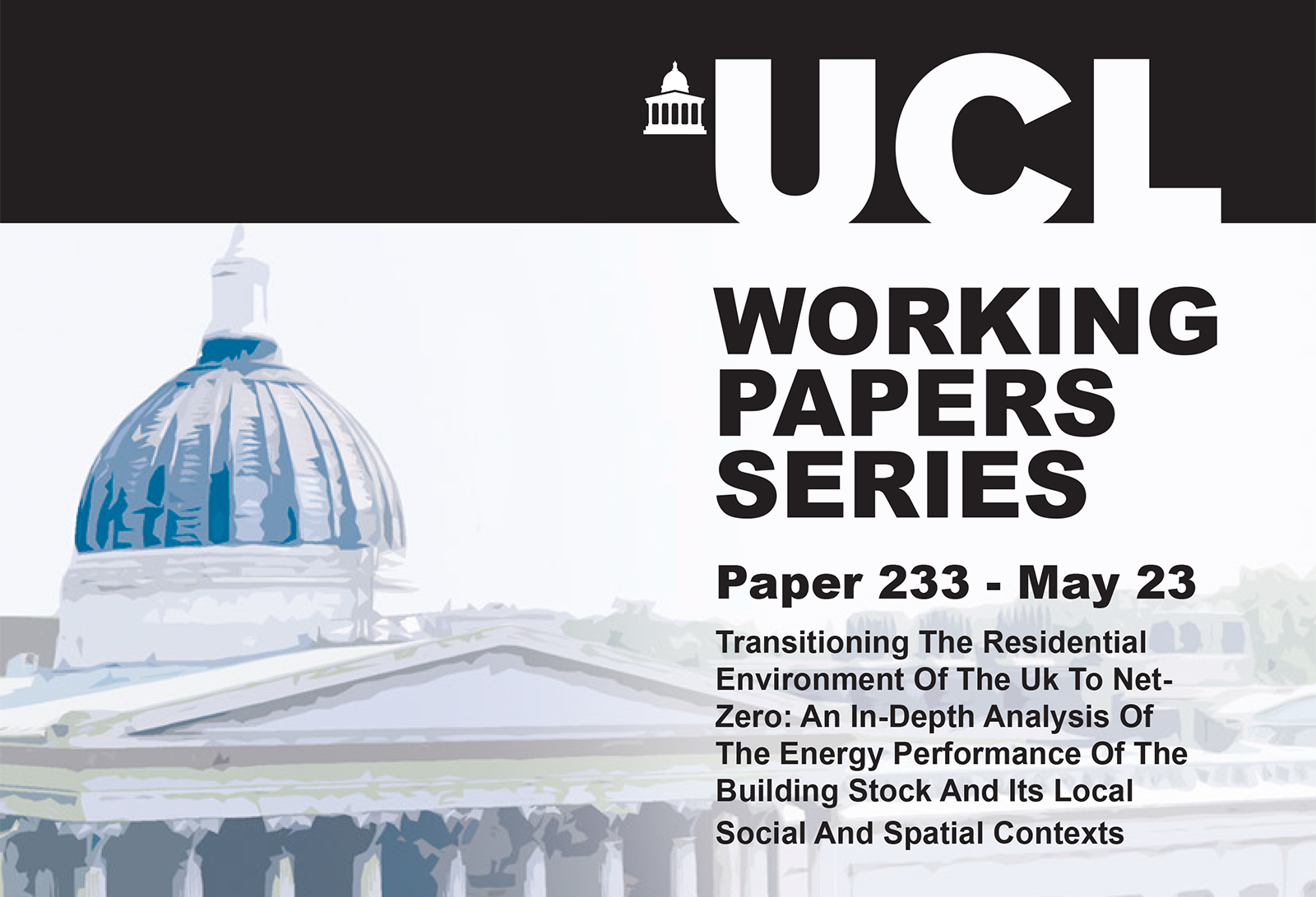CASA Working Paper 233
Transitioning the residential environment of the UK to net-zero: An in-depth analysis of the energy performance of the building stock and its local social and spatial contexts

22 May 2023
Abstract
This report analyses the national database of residential building Energy Performance Certificates (EPCs) and reviews the factors that contribute to and are associated with a varied geography across the country.
The background context is a government ambition to transition the UK to a ‘net-zero’ carbon-emitting economy by 2050 – an ambition that if achieved will necessitate systems change across the big carbon emitting sectors. While transport and industry will clearly play an important part in this shift, the role of housing will also be central. Britain has some of the most energy inefficient housing stock in Europe and a transition to greater efficiency will require targeted interventions in order for change to occur at the rate required to meet the target set.
The energy efficiency of housing also plays a very big role in household expenditure – something which has been brought to the fore in recent times due to the rapidly rising cost of energy and more general inflationary pressure which have seen living standards decline across the UK. More efficient housing requires less energy to heat or cool and so there are clear socio-economic benefits as well as environmental benefits to hastening a transition to more efficient residential building stock. New legislation and shifting standards in relation to the rental sector also mean that the shift to more efficient stock could yet play out in unexpected ways in relation to the supply and demand of a scarce resource.
Authors: Boyana Buyuklieva and Adam Dennett
Download CASA Working Paper 233 (file size 6.5 MB, file format pdf)
 Close
Close

